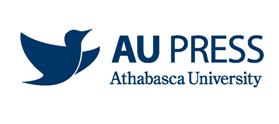AU Press was founded in 2007 as a fully open access press and we often pause during Open Access Week to reexamine our mission and reflect on our experience as the first open access university press in North America. Our mandate was one response to a crisis that has been developing in scholarly monograph publishing, a crisis with which we are all familiar. As university libraries, facing their own economic crises, purchase fewer and fewer books, sales of printed titles have been steadily dwindling. University presses that were founded on cost recovery models have thus been finding it increasingly difficult to generate sales sufficient to justify the cost of publication. At the same time, in the face of government funding cuts, alternative sources of revenue have steadily been growing scarcer, limiting the ability of publishers to offset a decline in sales revenue. In such circumstances, one has to question whether it continues to make sense to regard scholarly research and analysis as a commodity. In an effort to disrupt this trend, the founders of AU Press decided to offer that scholarly knowledge to anyone in the form of complete books available for download on our website at no cost.
“Free,” of course, does not describe the cost of publishing, nor can it possibly quantify the value of the work put into every page of every manuscript by both the author and the publisher. “Free” can only describe the lack of barriers to material that a small number of individuals will find immeasurably valuable. On a philosophical level, we are not inclined to justify open access by the rather narrow argument that taxpayers should have a right to anything to which their tax dollars happen to contribute. We would be more tempted to argue that inasmuch as the need for knowledge is fundamental to human culture, that knowledge should be shared rather than restricted to those who can pay for it. This is, of course, an idealistic position, perhaps absurdly so: it remains to be seen whether such thinking will ever gain ground.
Open access is currently an experiment, not a fully realized vision, and it is within this experimental framework that AU Press publishes. Our books are available for free as basic PDFs, but we also publish printed books and ebooks (epubs, universal PDFs) that are distributed through the same channels that the book industry has relied on for more than a century. We cannot escape the fact that we, like all university presses, operate in a market and that our institution hopes to see the press generate more revenue with every passing year. By adopting open access in this experimental way, AU Press hopes to be able to report to the larger scholarly community about the frequency with which open access PDFs are downloaded, the possible impact of open access on sales, and on the real costs of making this work both accessible and discoverable in multiple formats. Our institution continues to partially subsidize our publishing activities, and we continue to collect information and feedback and reflect on the potential inherent within this model.
This article is part of our 2014 Open Access Week blog series. Click here to read other articles in the series.


